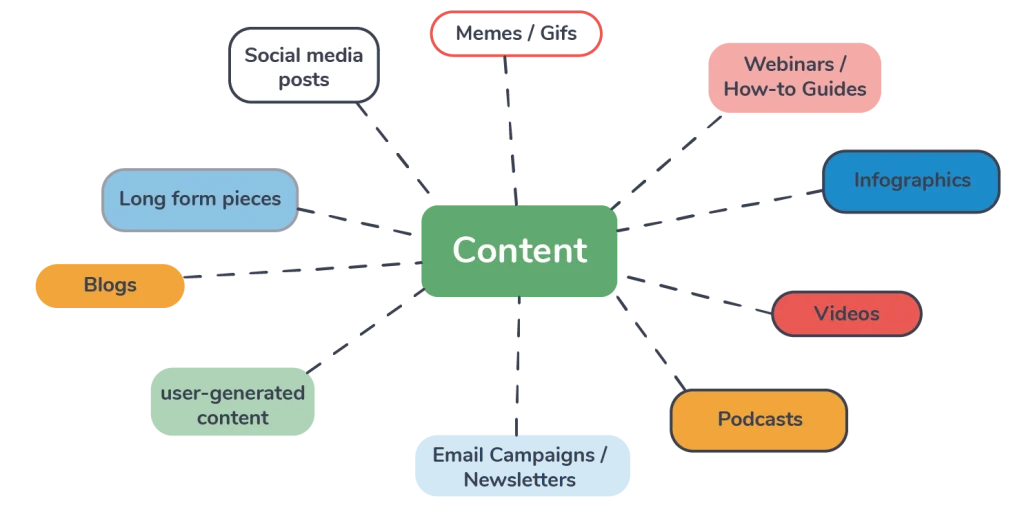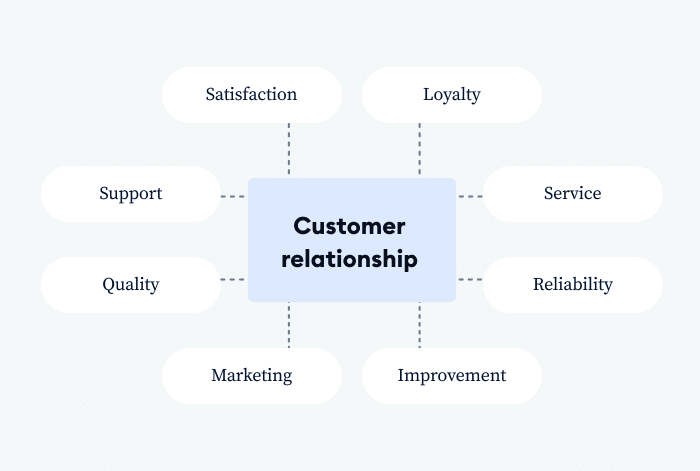
Founding a startup is a stimulating journey, but it’s also packed with challenges, especially in the early stages. One of the most critical aspects of building a successful startup is crafting effective marketing strategies that can help you gain visibility, attract customers, and drive growth. Most startups focus initially on the product or solution they develop as they should, but one must always remember that you created this startup in order to sell, gain profit, and make an impact in the market. Without marketing no one will know about the innovative solution you invented, and no one will know its benefits and capabilities. Yes, we know startups usually don’t have many resources and marketing is a big “spender” but in order to grow and expand, you have to invest. In this blog, we will explore some marketing strategies for startups that are perfect for early-stage companies looking to make a mark in the competitive business landscape.
Effective Marketing Strategies for Early-Stage Startups
Marketing is a big word, a huge world of opportunities, Let’s narrow down the fundamental elements of a marketing plan for startups:
- Know your market landscape: target audience, competition, influencers, journals, events, market size and potential growth
- Define goals and KPIs for short and long-term
- Set a professional infrastructure and valuable marketing tools
- Plan your actions
Know your market landscape
Let’s start with defining who is your ideal customer profile (ICP), search for their whereabouts online and offline, and understand their pain points, needs, and preferences. Conduct thorough market research; learn the market size and potential growth; find the leading journals, editors, and influencers; identify your competitors, direct and indirect ones; browse through their websites and social media platforms; understand their solutions and how they address the market.
Define goals and KPIs
Defining clear marketing goals and Key Performance Indicators (KPIs) based on your product roadmap and business strategies is a critical step. At this stage, startups should focus on both short-term and long-term objectives. Short-term goals might include increasing brand awareness, driving website traffic, or generating leads, while long-term goals could additionally involve achieving a specific market share, revenue target, or customer acquisition cost reduction. These goals should be SMART (Specific, Measurable, Achievable, Relevant, and Time-bound). Simultaneously, identifying appropriate KPIs is vital for tracking progress and assessing the effectiveness of marketing efforts. Common KPIs for early-stage startups often include customer acquisition cost (CAC), customer lifetime value (CLV), conversion rates, social media engagement, and organic search traffic. By setting well-defined goals and KPIs, early-stage startups can optimize their marketing strategies, allocate resources efficiently, and pave the way for sustainable success in the competitive business landscape.
Set a professional infrastructure and valuable marketing tools
Let’s go into the “Tachles” (Tachles is an Israeli slang word that comes from a Yiddish variation of the Hebrew word for essence or purpose ) and build the right infrastructure and marketing tools.
Audience Database, establish a customized audience database based on your marketing analysis and research. All startups need to compile lists of prospective customers. Constructing this database doesn’t obligate you to purchase lists; you can use tools like LinkedIn Sales Navigator and other available options.
Content Marketing
Create value through information. Based on your solution/product, write your unique selling points (USPs) and develop messaging that distinguishes you from competitors while emphasizing your USPs. Content is powerful; you can establish your startup as an authority in your industry by producing high-quality and relevant content, such as blog posts, videos, infographics, white papers, articles, and eBooks. Content educates and engages your target audience and improves your search engine rankings.

Website
Build a solid, well-designed, user-friendly, mobile-responsive website to clearly communicate your value proposition and help you convert visitors into leads.
SEO optimization
Optimize your website for search engines to improve your organic visibility and reach your target audience. Research relevant keywords and incorporate them into your content, meta descriptions, and title tags. Additionally, use analytics tools to track the performance of your marketing efforts. Monitor key metrics like website traffic, conversion rates, and customer acquisition costs.

Social Media Marketing
Social media platforms offer a cost-effective way to reach a broad audience and build brand awareness. Create profiles on platforms where your target audience is most active, and share engaging content, including images, videos, and user-generated content. Social media is also a fantastic avenue for interacting directly with your customers, gaining feedback, and building a loyal community. You can continually expand your presence by investing in paid advertising for targeted outreach.
Email Marketing
Build an email list and send targeted, personalized emails to your subscribers. Nurture leads through email campaigns, sharing valuable content, and offering exclusive promotions.
CRM marketing platform
Manage, track, and measure the ROI of your marketing activities via a CRM tool such as HubSpot. There are several levels of programs, and you can expand as you grow. A CRM tool will help you with your email marketing strategy; you can segment your email list to send tailored messages, and monitor open rates, and click-through rates to refine your content strategy.
Networking and Partnerships
Attend industry events, conferences, meetups and conduct webinars to establish relationships with potential customers and partners. Collaborate with complementary businesses to expand your reach.
Maintain customer relationships
As mentioned previously, email marketing remains an effective tool for nurturing leads and building long-term customer relationships. Email marketing allows you to keep your audience informed about new products, promotions, and updates. Make sure you use compelling subject lines and concise, visually appealing content, imagery, and video.

Collaborations
Collaborate with influencers in your industry to leverage trust and authority to help you gain credibility and reach a wider audience. Identify influencers who align with your brand values and target audience, establish clear terms of collaboration and goals, and work with them to promote your products or services. Influencers can provide authentic endorsements that resonate with their followers.
Leverage synergy networking with business partners and form strategic partnerships. Seek out complementary businesses that share your target audience but don’t directly compete with you. Collaborations can range from co-hosting events and webinars to cross-promoting each other’s products or services online, focusing on creating value for both parties and the shared audience.
Content Syndication
Share your content on relevant industry websites, forums, and communities to reach a wider audience. This can help establish your startup as a thought leader in your industry.
Awards
Based on your marketing research, make sure to enter your company and product/solution into numerous industry awards. Many award submissions are cost-free and offer excellent brand and solution exposure opportunities.
Customer Success Stories
Present your existing customers’ case studies, success stories, and video testimonials. These valuable assets can be powerful in convincing potential clients of your solution. Additionally, gather customer feedback and use it to adapt your marketing strategies based on their input and the evolving market trends.
Paid Advertising
While budget may be limited, targeted paid advertising on Google or LinkedIn can effectively reach specific B2B audiences. Start with a small budget and optimize as you go.
Why outsourcing your startup’s marketing might be a game-changer?
Early-stage startups face various challenges, but with the right marketing strategies, you can gain a competitive edge and accelerate your growth. Content marketing, social media marketing, email marketing, influencer marketing, and networking/partnerships are all valuable tools that, when used effectively, can help startups build their brand, engage their audience, and ultimately achieve long-term success in today’s competitive business landscape. Success in marketing often comes from experimentation, so don’t be afraid to adapt and refine your strategies as you learn more about what works best for your startup. You may need to focus on a few key strategies initially due to resource constraints, but as you grow and have more resources at your disposal, you can expand and diversify your B2B marketing efforts.
A good solution for early-stage B2B startups who don’t have much marketing experience and operate with a small team would be to hire an agency knowledgeable in marketing plans for startups. Work with a marketing agency that knows how to operate in a lean and mean environment with a limited budget. This agency understands your pain points and can tailor strategic solutions accordingly in order to make the best possible moves and contribute to taking your company forward.
The SAGE Marketing team has vast experience in strategizing and executing SaaS startup marketing plans and Fintech, cloud networking, AI, Optics, surveillance, and more.
Interested to learn more? Contact us today to schedule a meeting with our team.




